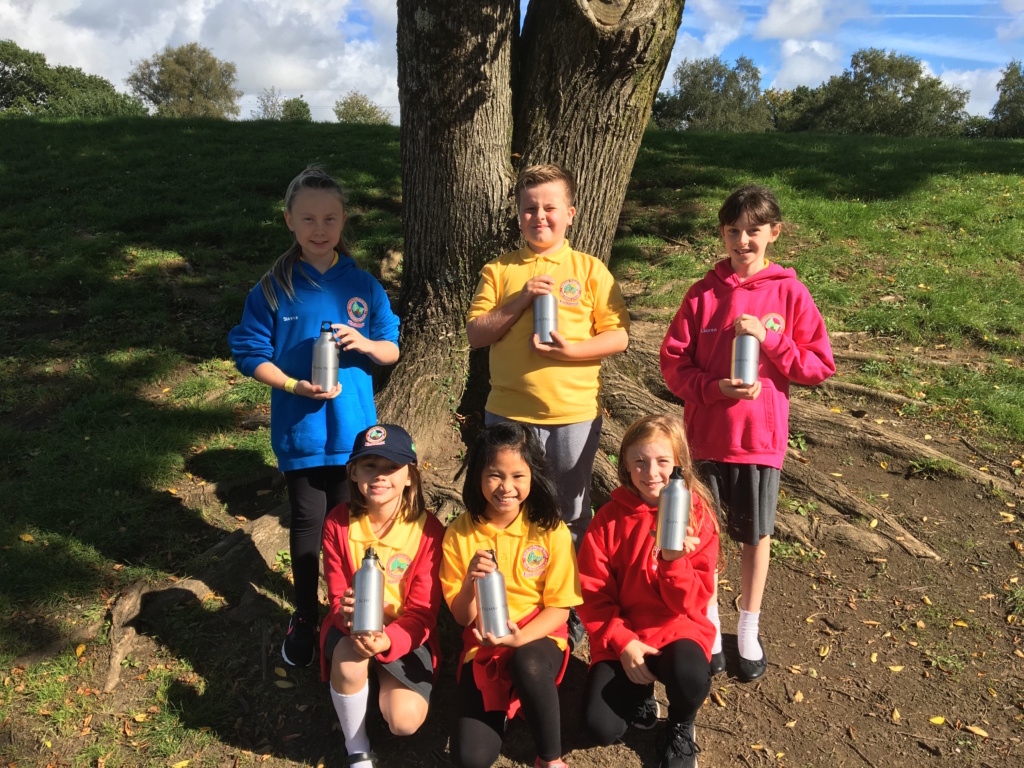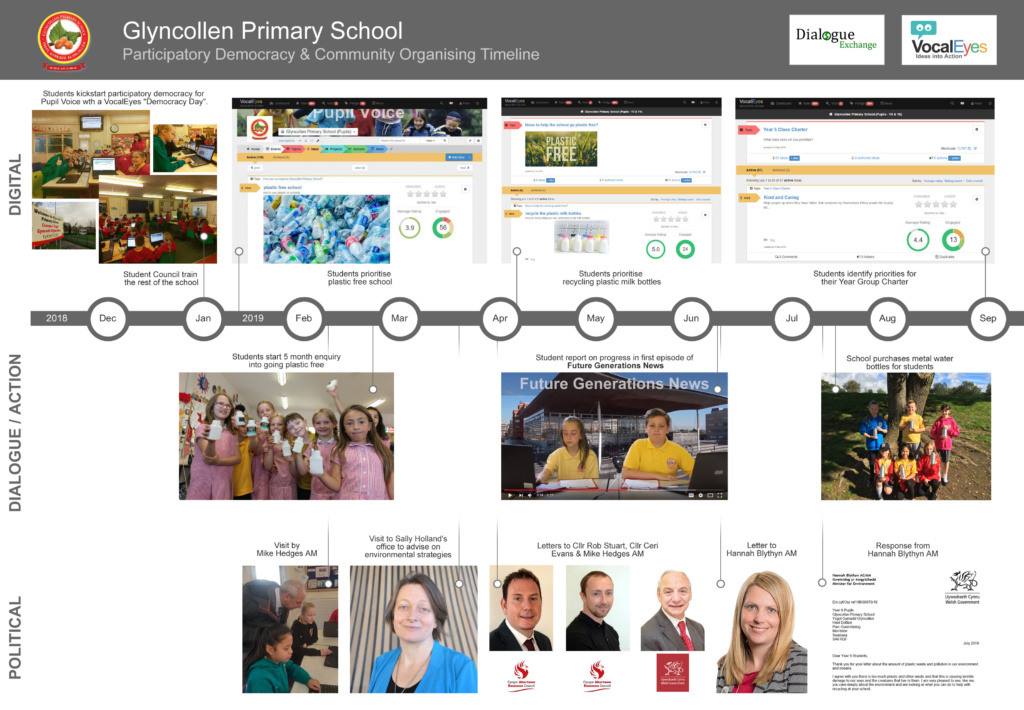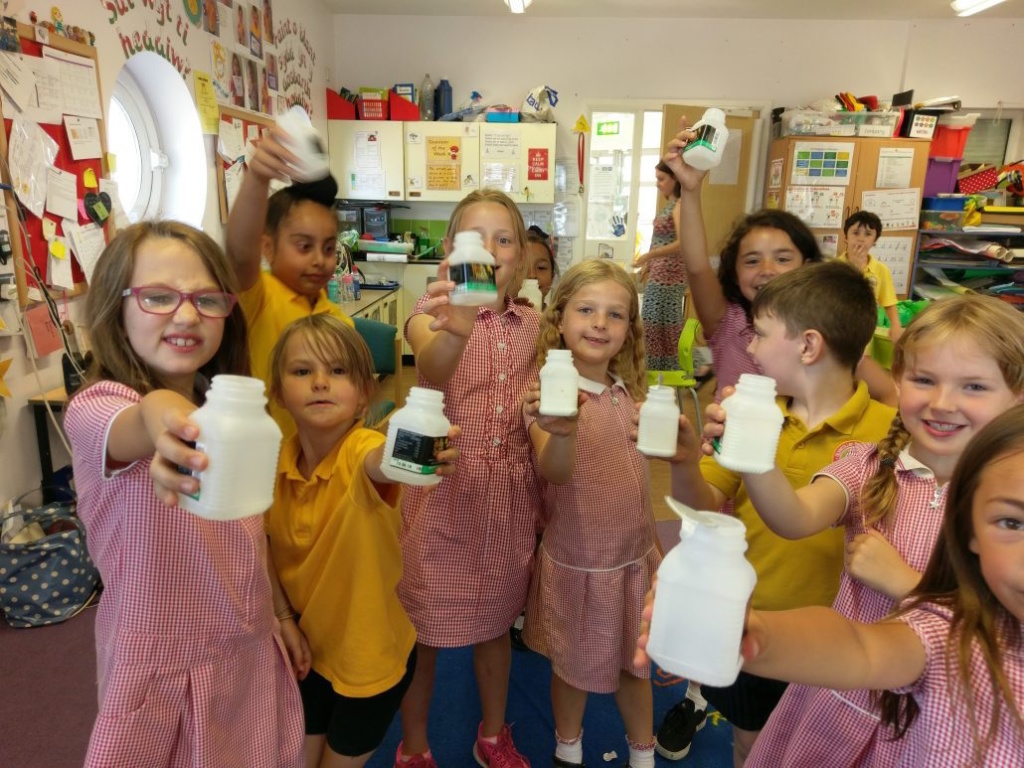
Covid-19 has highlighted the uncertainty of the future and uncovered huge societal problems that need attention. We have to learn to live sustainably; we have to find ways of responding to climate change, pollution, resource depletion, species elimination – these are huge challenges our young people face as they grow up.
Climate change will affect everything we do: how we grow food, build houses, supply energy, provide transport, support health and social care and so on. Education has to be at the heart of learning to live in harmony with the planet and that means listening to student voices.
If pupil voice is to be at the heart of our aspirations for education, young people need a chance to deliberate together on how to make a better school and a better society. They need opportunities to express their opinions and know they will be listened to. And if they express anxiety about the future, we need to listen and give them an opportunity to take action on what they are worried about. A key means to this end is digital.
Starting with Pupil Voice
The United Nations Convention on the Rights of the Child (UNCRC, 1989) sets out a set of participation rights for children that includes the right to a voice, to be listened to, to exercise agency and negotiate meanings with others.
The UNICEF Rights Respecting School Award has been important in embedding pupil voice in our schools and five cities including Cardiff, are on a three-year journey to achieve the UNICEF Child Friendly City award(https://childfriendlycities.org/). Each city needs to demonstrate measurable progress in practically embedding children’s rights within local systems and services.
Working with schools in Cardiff we have introduced VocalEyes, a digital democracy platform to facilitate student consultation and action. We started with two case study schools and then launched the initiative to the first cohort of secondary schools. See the Launch of Participatory Democracy at the Grand Council in Cardiff: https://www.youtube.com/watch?v=S-jweGpKJpI
What is VocalEyes?
VocalEyes is a digital platform designed to support pupil voice in schools with the capability of being embedded in the curriculum.
VocalEyes is a Participatory Democracy approach to continuous consultation with young people. The platform ensures every Child and Young Person’s (CYP) voice can be heard and acted upon in line with Article 12 of the UNCRC which establishes:
“The right of every child to freely express her or his views, in all matters affecting him or her, and the subsequent right for those views to be given due weight, according to the child’s age and maturity.”
At the heart of the VocalEyes platform is a commitment to the preparation of CYP for citizenship as they are supported to become active partners in the process of learning and school decision-making.
VocalEyes can overcome the significant problem of how schools can listen to the voices of all students, not just those who have been elected to the School Council. When students know that their ideas are welcome and will be taken seriously, they feel valued as they gain agency in the school and the community.
One of the challenges for schools wishing to put Pupil Voice into action is whether or not participation is authentic or merely tokenistic. VocalEyes seeks to engage CYP throughout the process and begins by training a group of students in the school to use the platform and supporting them to train the rest of the school. In this way, a medium-size primary school can have all KS2 pupils on the platform in one day.
See the team talking about their Democracy Day at Bigyn Primary School in Llanelli: https://youtu.be/c5GXf8pSfLE
Going Plastic-Free
The children at Glyncollen Primary School in Swansea used the VocalEyes platform to suggest ideas for school and community improvement. Having recently watched ‘Blue Planet II’, the children were concerned about the impact of plastic on sea creatures and prioritized ‘going plastic free’ as something they wanted their school to do.
Head teacher, Anna Bolt could see immediately that this was an important topic that called for children to become researchers. Following consultation with the class teachers, each class in the juniors used a project-based approach to investigate plastics to find out what would be involved in becoming plastic-free.
Pupil enquiry and research is at the heart of a project-based approach and is a very powerful tool for young people to explore topics that they have prioritized as important to them. The school’s journey was impressive.
Glynncollen is a Bronze Award Philosophy for Children school and so the children are used to raising questions and categorizing them. They identified many research questions as well as ethical ones and set about their enquiries. They used a range of innovative ways to present their learning through blogs and videos and other media-inspired reporting. They wrote poems and created narratives to express how strongly they feel about the future of our planet.
Peter from VocalEyes and Sue from Dialogue Exchange went to see Year 6 and members of the school’s Eco-committee to find out about their journey. We wished to capture the children’s journey to investigate plastic use in their school and to help them show others how a commitment to participatory democracy had empowered them to be activists in their own communities.
The following is a description of what we did in one day with the Year 6 class to help them record their journey. It can be used as a model for other teachers to help students report on action they have taken to help mitigate the climate crisis and ecological breakdown we are facing.
What We Did
We arrived in the school and met with Year 6. They responded enthusiastically to the prospect of making a video and we suggested they adopt the style of the children’s Newsround programme. We agreed the format for the day as follows:
9.15 – 10.00
The class mapped the story of the class’s journey:
- introduction of VocalEyes to the school
- prioritizing ‘going plastic-free’ by pupils
- carrying out research into plastics
- identifying a campaign issue
- carrying out their campaign to reduce plastic in the school.
10.00 – 10. 30
- To give them a picture of what they were aiming for, the class viewed and deconstructed a BBC ‘Newsround’ programme (see activity sheet below) so they thoroughly understood the different processes involved in putting a short news item together.
10.30-10.45
- Playtime
10.45 – 12.00
- We identified specific jobs for each person/groups of people to do:
- Two presenters to introduce the programme and cue in the various reporting teams – the anchors of the programme
- Teams to take responsibility for different items in the programme
- Identify children who wanted to make a creative response to the problem of plastic
- Identify locations for filming
- Identify others in the school to be involved in filming
Groups to storyboard each item for the programme as follows:
Where (film locations)
- What items for the programme will be shot
- How often location will be changed
Who
- Is involved in each shot
- A director to oversee each shot
- Someone to film
- Someone to take responsibility for making sure props are in the right place at the right time
What
- What props are needed for each item of filming
- Someone responsible for gathering props together
How will it be framed?
- Long short? (from a distance to establish the scene)
- Medium shot (showing upper part of body)
- Close up (showing just head and shoulders – better for dialogue)
- Try to shoot each scene from different angles/perspectives to see which works best
Scripting
- Each group worked to script their aspect of the programme and rehearse it.
- Decisions to film involving the infants drinking milk organized
- Eco-committee of the school invited to tell their story of visiting the Children’s Commissioner for Wales’ office
Responsibility
- The two ‘presenters’ of the programme took responsibility for coordinating filming and checking scripts, scheduling the order of filming and liaising with others who were to be involved. Sue and the class teacher moved around to help keep them to time and deal with any problems arising.
1.00– 3.20
Filming
- Pete from VocalEyes used a video camera for filming and was assisted by different members of each group who filmed from different angles using a phone.
- The afternoon was extremely busy as each group was filmed in turn. The creative group produced a poem and the presenters coordinated the order of presentation.
- During the following week the final video was put together.
Future News
We think you will agree the result is, as one of the children said, “Awesome!” You can view it here:
Glyncollen Primary School – Future Generations News – Plastic Free School (https://youtu.be/-guwv5YnbfE)
Key learning
These young people were engaged in participatory democracy. Using the VocalEyes platform they prioritised ‘going plastic-free’ and then by taking on the roles of researchers and co-inquirers they developed a campaign to target the governing body of their school, their local councilor, their local council, the Children’s Commissioner for Wales, their local Welsh Assembly member and the Welsh Minister for the Environment.
Their campaign identified the reduction of plastic bottles used for children’s milk in the Foundation Phase (free to all under 7 in Wales). This involved carrying out extensive research into alternatives and how much plastic could be saved if their proposal was to be scaled-up and adopted in all schools in Swansea.
Here is a chart to show their journey:

During this process they have learnt they are key members of not only their school, but their local community, town and country. They have exercised leadership and been genuinely involved in a participatory democracy process.
At the beginning they didn’t know who their local councilors were, who the head of Swansea Council was, who their local Assembly Member was or who the Minister for the Environment was or how they could interact with them. By the end they had a good understanding of how local democracy is structured.

They were very excited to get a very positive response to the letter they sent about reducing plastics to Environment Minister at the Welsh Government, Hannah Blythyn, AM. Hannah began her response to the children by telling them how pleased she was that they cared so deeply about plastic waste causing “terrible damage to our seas and the creatures that live in them”, and for all their ideas about reducing plastics in their school.
Hannah also gave the children some important information to help them with their campaign. The children wanted to stop the use of 150mm bottles to supply the free milk entitlement for children in the Foundation Phase. Their idea was to replace the 150mm bottles with 2 litre bottles from which the 150mm per child could be dispensed. Hannah recommended that they ask Swansea, the local council who buys the milk, to consider other ways of supplying it. Rather than just wait for action, the children raised money to buy every child in the school a stainless-steel bottle for their milk, so their arguments were already strengthened.
They didn’t get what they wanted but have learned what it means to try and turn their good ideas into action and learned a lot about local democracy and their video has been viewed by many other schools who have taken up their campaign. As their head teacher, Anna Bolt said:
“This is such an effective way of engaging pupils in the democratic process. Year 6 are leaving us now, but they have started something that the school will continue with as we plan a concert to share with parents the children’s concern for the natural environment. The children started with digital democracy and have ended up community reporting on their ideas through the video. I think it’s fantastic.”
Let’s leave you with Megan and Sophie from Year 6’s poem:
The Death Of the Sea
Plastic gliding through the cryptic sea.
Dolphins darting by.
The silence heavy in the unbreathable air.
The dolphins didn’t deserve to die.
A bird stoops down, curiosity gleaming in his eyes.
Plastic lies on the deserted sand.
One man’s waste is another man’s treasure
The bird gets stuck and joins death’s band.
A turtle creeps along the shore.
Plastic lying there.
The turtle thought she had found a friend.
The humans just don’t care.
Now you know what happens, please, help out.
These creatures don’t deserve this pain.
How would you like it?
Please get off the animal abuse train.
(Megan and Sophie, Year 6)
To find out more about VocalEyes please visit https://about.vocaleyes.org/
Or call us on 0800 689 0290
Get Access To The Full Issue Free Of Charge Here
Register for free
No Credit Card required
- Register for free
- Free TeachingTimes Report every month